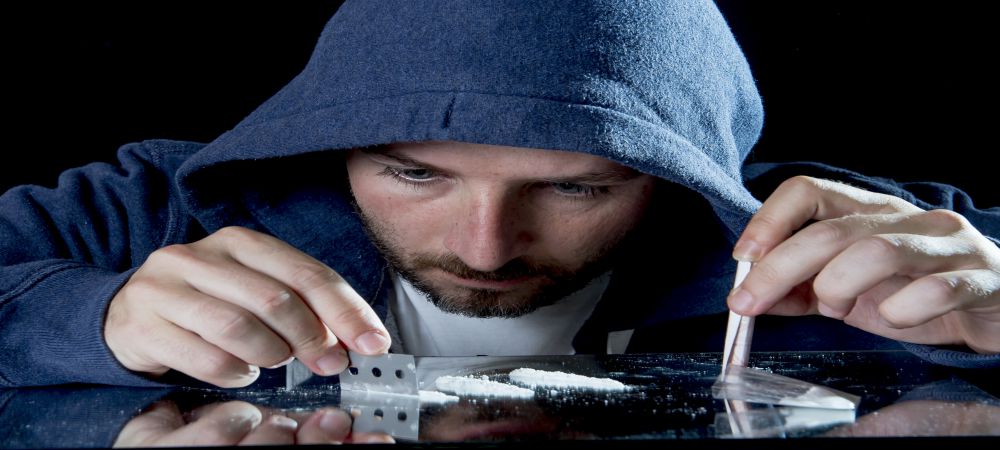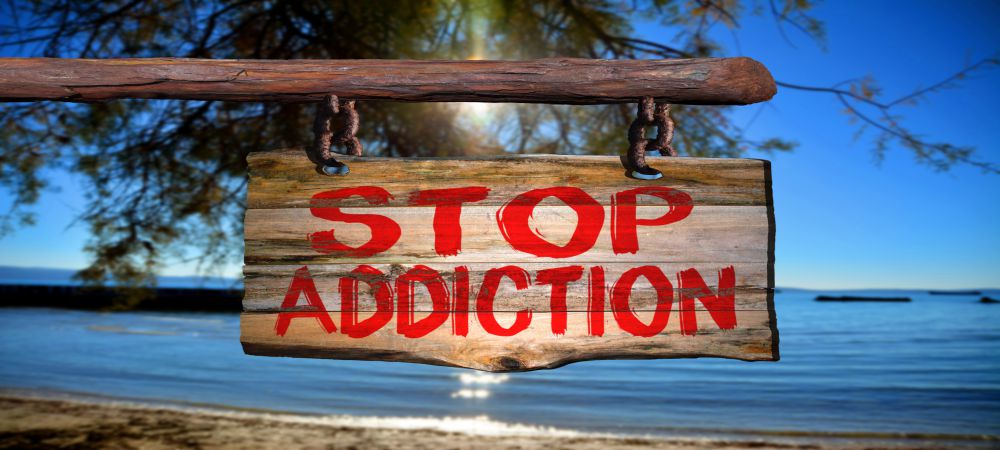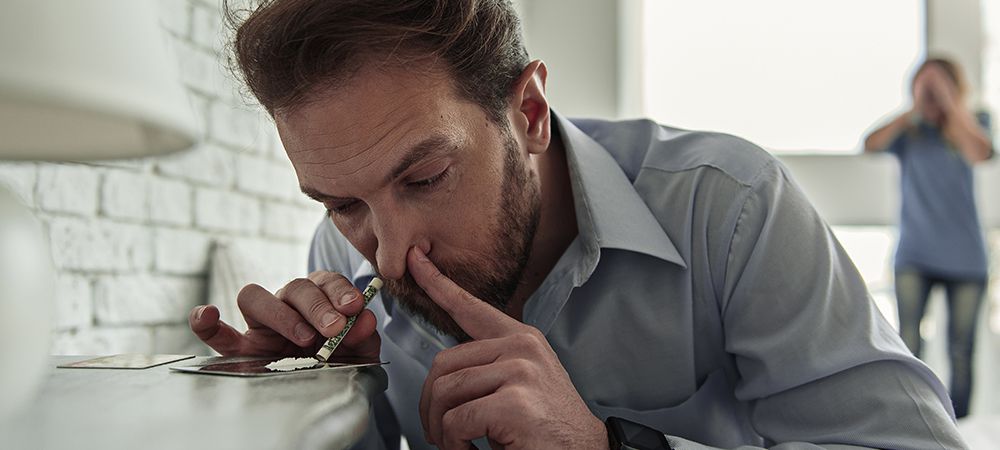When you want to help a loved one with a heroin addiction, you need to exercise patience. Of course, you love this person, and as such, you want to help them as fast as possible.
But, you don’t want your good mindset to cause avoidable problems with that loved one. So, if you care about them, you’ll take the necessary steps to help without compromising your relationship with them.
The first step you can use to protect a loved one you suspect of heroin addiction is knowledge. You need all the info you can get about heroin and its abuse.
Firstly, heroin is an opioid drug with highly addictive properties. Heroin is highly addictive and dangerous. Between 2002 & 2015, information from the National Institute on Drug Abuse reported a sixfold increase in deaths related to heroin overdose.
When heroin enters your body, it activates the brain receptors, and in turn, the brain releases dopamine. Dopamine is a chemical in our brains that gives us a joyful feeling. So, when you take heroin frequently, you start to feel good only under its influence. And, your brain starts to adjust to this reality.
Heroin disrupts dopamine production making sure you’ll rely on the medication to feel great. That’s why it’s easy to get addicted to the drug. It’s the same reason it can be hard to help a loved one you suspect of heroin addiction.
In this article, we’ll be showing you some signs to watch out for if you suspect a loved one for heroin addiction. After that, we’ll explore how to approach and help a loved one with a heroin addiction. Let’s get your loved ones the help they need!
How to Tell if Your Loved One is Addicted to Heroin
Before you can help a loved one with heroin addiction, you have to be sure they’re addicts. To confirm this condition, you need to pay close attention to that loved one’s attitude and behaviour. Although, you have to make this attention as discreet as possible. If your loved one notices unwanted attention, they may react harshly to you.
For example, let’s assume you suspect your cousin is a heroin addict. If you start sneaking up on them and intruding on their privacy, they may avoid you. In some cases, they may even get furious with you.
Let’s take a look at common signs of heroin addiction you can look out for in a loved one.
Tools for using heroin
The best way to verify if your loved one is a heroin addict is to see them take heroin. However, most heroin addicts will do all they can to use the substance privately.
As a result, no matter how addicted they can get, you may never see them use heroin. They may keep secrets about the actual smoking of heroin, but they don’t always keep the devices. The best way you can confirm if your loved one is a heroin addict is to find the tools they use to take heroin. The question you need to ask yourself is, what are the devices for taking heroin?
To answer that question, you need to first know the different ways to take heroin. In most cases, users usually inject heroin into their veins. The primary tool they use to do that is a medical needle syringe. So, you can start looking around for it to help a loved one struggling with heroin addiction.
However, injecting heroin is only one of multiple ingestion methods. Heroin addicts can also choose to smoke or snort heroin. For these methods, the tools they’ll need are mostly pipes, lighters, and spoons. So, if you have any suspicions, you can check around your loved one’s space for those objects.
You can also check for crumbs of heroin leftovers in the immediate environment of your loved one. Heroin can come in three different colours namely white, brown, and black. The most popular colour you’ll often see is the white powdered form.
Look out for these particles in your loved one’s space. A good place to start the search is their pile of dirty clothes.
Misplaced focus
Once you notice a loved one who has a drug abuse history having problems focusing, there’s a possibility they have issues with heroin.
Of course, this doesn’t mean anyone who is struggling to focus is a heroin addict. What it means is most heroin addicts naturally find it hard to concentrate on their everyday life activities. All they want to do in most cases is use heroin.
For instance, let’s assume you want to help a loved one who’s a doctor with heroin addiction. One of the signs you’ll notice is a total loss of interest in their job. They’ll suddenly stop taking medical-related classes and scenarios seriously.
To confirm this, you can try to bring up conversations relating to a topic they love. If your loved one has that conversation with their regular gusto, they may not be addicts or are in the early addiction stage.
But if you notice their reaction is anger or disinterest, you can suspect a heroin habit — especially if they have a history of drug abuse.

Negative physical changes
Heroin abuse, like any other hard drug addiction, will naturally affect your physical appearance when you abuse it. The mouth of a heroin addict is primarily dry when they are high on heroin. Also, their skin may begin to react and start looking flushed.
Another sign that comes with heroin addiction is a loss of interest in physical appearance. For instance, let’s assume you suspect a loved one who is a ‘fashionista’ with heroin addiction. A great sign to look out for is a lack of interest in their fashion choices and appearance.
Psychological changes
When heroin is always in the body of an addict, it begins to affect their psychology. They begin to showcase new behaviours you haven’t noticed before. A self-explanatory one is a total replacement of old friends with new ones. In most cases, these new friends happen to be the source of their heroin addiction.
Also, heroin addicts may have rough relationships with their family, friends, and loved ones. So, say you are close friends with a loved one, you want to help with heroin addiction. You have to be careful enough to help with their condition intelligently. If you don’t, the relationship may suffer.
Furthermore, the average heroin addict will drop their usual daily activities and habits. They may suddenly become very secretive with their daily lives. If they loved talking, they may suddenly become reluctant to hold conversations. So, you can keep an eye on these behavioural changes in someone you love.
Financial problems
Heroin is not a drug you can find in any drug store in Canada. In most cases, you can only buy heroin from illegal sources. That means these illegal sources have total authority over the price of heroin. As a result, heroin often falls on the expensive side.
Despite the cost, heroin is still one of the primary sources of widespread opioid addiction across Canada. That means many addicts spend thousands of Canadian dollars trying to get heroin. So, if you have a loved one with a heroin addiction, you may want to help before their finances take a permanent downturn. Lack of money is another sign you can look out for in a heroin addict.
All of a sudden, they may begin to need more financial help than usual. For instance, let’s assume your loved one earns about $2,000 at the end of every month. If at the early stages of a new month, they need loans, you can suspect an addiction. Again, you need to confirm this claim before you try to help.
Crime activities
At some point in the life of a heroin addict, they may get into a lot of debt. Yet, they’ll need money to buy heroin.
To fill this need, heroin addicts may get involved in criminal activities like stealing to earn money. If you have a loved one you suspect with heroin addiction, watch out for any criminal activities.
If they are being shady in the bid to make more money, they are likely stealing to fund an addiction habit. However, you need to look out for the other behavioural changes we have discussed before you confirm your assumption.
Related Article: Is There Hope for Someone Dealing with Heroin Abuse?
How to Help a Loved One Struggling with Heroin Addiction
The best thing you can do for a loved one with a heroin addiction is to offer help. However, you must know that heroin addiction is a complex situation to manage for the addict. In some cases, they do not believe they need help to conquer their addictions. In other instances, they know they need the service but have no idea how to get the help they need.
That leaves you with a daunting challenge if you wish to help a loved one with a heroin addiction. You can’t just wake up one morning and say, “Hey, I think you are a heroin addict.” The reaction you’ll most likely get is probably extreme anger from the addict. If they do not get angry, then they’ll try to avoid you at all costs.
The first thing to do, as we have mentioned earlier, is to confirm your suspicion silently. For you to do that, you have to do adequate research about the signs of heroin addiction. It’s a procedure that will require your time, focus, and attention. So, you must be willing to give that amount of work and attention to your loved one.
Depending on the extent of the heroin addiction, the work you have may reduce or increase. If you want to help a loved one with early-stage heroin addiction, the path may be easier.
But if the situation is worse, you have to put in more work and may need to involve heroin addiction rehab services. Let’s take a look at the steps to help a loved one get help with heroin addiction.

Prepare your mind
If you think heroin addiction treatment is an easy process, you need to reconsider your stance. It’s a procedure that requires a lot of research, patience and attention. Also, helping someone with a heroin addiction may take a lot of your time. So, if you don’t have the right schedule, you may need to involve another person.
That person must have the required freedom and free time to handle this task. Some addiction treatment programs may last as long as 12 months. In some other cases, some people get free from heroin addiction within a few weeks.
At some point through the recovery process, it’s very typical for you to get frustrated. In some cases, that loved one may pick a fight with you for trying to help. That’s why when you want to help a loved one with heroin addiction, you need to prepare your mind for a few bumps in the road.
Do adequate research
You can’t convince yourself that your loved one is a heroin addict if you don’t understand heroin addiction. Like we have explained above, there are many behaviours to expect from a heroin addict. You need to understand them.
However, that’s not where your heroin addiction research should end. When you want to help a loved one with a heroin addiction, you have to trace why they became addicts.
There are a lot of reasons why the person you care about is using heroin:
- Heavy smoking: Sometimes, heroin addiction didn’t just develop overnight. It starts from somewhere, and in many cases, it begins from smoking heavy amounts of tobacco.
- Depression: Sometimes, the rigours of life may cause overthinking which leads to depression. For someone who is depressed, they’ll feel moody most of the time. In that situation, it’s easier to crave happiness from every source possible.
When a depressed loved one comes in contact with heroin, they’ll feel happy after use. Of course, you can trace that to the release of dopamine in the brain. So, if you want to help a loved one with a heroin addiction, they may need a mental evaluation. Sometimes, substance use disorder is an indication of a higher problem.
- Peer pressure: The average Canadian has no idea what heroin looks like or where to buy it. However, if they start to move with addicts they may get introduced to heroin. This drug is an opioid with highly addictive properties. So, your loved one may want some more after using it only once.
- Addiction history: Sometimes, people can become addicts because of a family addiction history. It may be another substance, but that addiction history can influence new addiction behaviours. Before you help a loved one with a heroin addiction, try to confirm if they have an addiction history. Whether it’s a personal addiction or a close family member, it can influence a new addiction.
These are some of the risk factors of heroin addiction that we have listed above. However, it doesn’t mean that when someone has these risk factors, they automatically become heroin addicts.
It’s only a measure of the possibility of addiction. More importantly, these risk factors can be a roadmap that guides effective heroin addiction treatment.
Plan your approach
The way you choose to help a loved one with heroin addiction is a crucial part of their recovery. If you get it right, you will most likely succeed in helping them. However, if you get it wrong, you may worsen the situation. In some cases, you may even lose the relationship.
You cannot approach a loved one with heroin addiction aggressively and expect a change. In most cases, you’ll only affect the relationship between the two of you. What’s better is for you to approach them from a place of love and compassion. That way, you can even get them to trust you enough.
The first thing you should do is to make them understand why they are addicts. After that, make them believe they have what it takes to break free from heroin addiction.
However, you should note that they are fragile at these points. With that in mind, you should choose your words carefully. Here are some of the common mistakes you should avoid:
- Do not try to preach or lecture a heroin addict about religion or morals
- Do not lie on behalf of the heroin addict
- Do not rub the guilt of addiction in their faces
- Do not fight or argue with them when they are high on heroin
- Do not feel guilty that you can’t stop them. It’ll take a while for them to stop. Their addiction isn’t your fault.
Provide treatment options for heroin addiction
If you want to help a loved one with heroin addiction, you will need help. Of course, you may feel like a third party is risky. However, it’s only dangerous if that third party is not a professional with experience helping heroin addicts.
You may ask why you need help to treat a loved one with a heroin addiction. The simple answer is, you can’t do it alone.
Heroin addiction can’t be reversed with stern words and punishment. It is a disease that changes the way the brain works. As such, recovery will require medication and extensive therapy.
There are two ways to treat heroin addiction;
- Medical treatment: This treatment is the best option to go for heroin addiction. You can choose to get treatment in the rehab centre as an inpatient. Also, you can get the treatment on specific visits to the hospital as an outpatient. Whichever one you choose, depends solely on the extent of addiction and the choice of medical centre you’re using.
The first step is the detoxification stage, where the patient clears their body system of all heroin particles. You have to do this under close supervision from doctors and family. It’s at the detoxification stage that withdrawal symptoms begin to reflect within the patient. So, in most cases, it’s safer to contact a medical facility to handle these conditions.
Some drugs can help with withdrawal symptoms when they come. An example is methadone which is also an artificial opiate drug. Another example is Buprenorphine.
- Psychology treatment: Psychological treatment is the treatment that focuses on behaviour. Mostly, it’s often used in combination with medication-based treatment. Psychology treatment involves using methods like cognitive behavioural therapy to reverse the patterns that encourage
Related Article: What is the Cost of Heroin Addiction Treatment in Toronto?
Get Help for Your Loved One Now
Trying to help a loved one with heroin addiction can be a daunting process. It may require you to drop your daily activities for the cause.
The good news is you don’t have to try to help that loved one with heroin addiction on your own. It’s a brilliant idea to seek some help. All you have to do is ensure the person is a professional with experience in heroin addiction treatment.
Here at 1000 Islands Rehab Centre, we are home to specialists who have experience treating heroin abuse and related symptoms. Let’s chart a recovery path for your loved one today!
